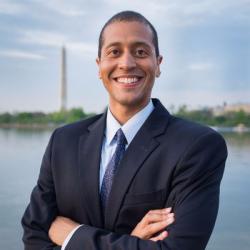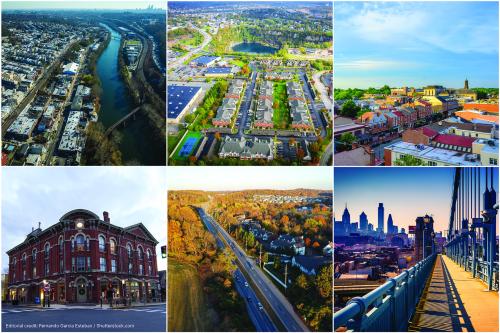Amazon makes its choice(s)
After over a year of speculation and countless hours North American cities spent wooing the tech giant, Amazon made its final choice in the HQ2 competition this week: naming Arlington, Va. and New York City as sites for its next headquarters. Alan Berube makes the case that the decision came down to one big factor: talent. Meanwhile, Jenny Schuetz offers tips for how cities that didn’t make the final cut can improve their overall competitiveness and boost prospects for existing residents and businesses, beyond hoping for a rose from a billionaire suitor.
The Heartland: If not Amazon, then what?
Amazon’s choice of two coastal metro areas has added fuel to concerns that tech-driven “superstar” regions are pulling away from the rest of the country, leaving other areas behind. (Amazon did announce that it will locate a smaller operations center in Nashville.) So what can inland leaders do to ensure that they share in the next wave of prosperity? Mark Muro, Jacob Whiton, Robert Maxim, and Ross DeVol inventory the assets of the 19-state Heartland region (spoiler: they’re considerable in many areas, despite the common perception) and flag urgent human capital and innovation investments needed to ensure that the region delivers on its potential. (Another source for strategies and inspiration: Germany, according to John Austin, which is navigating its own industrial transition more successfully than the United States thanks to its markedly more robust approach).
2018 exit polls show greater white support for Democrats
While national coverage of this year’s midterm elections has focused on which offices and chambers are changing hands, William Frey’s analysis of exit polls breaks down the realities of who different demographic groups voted for to propel these leadership changes. Frey finds that younger, female, and more educated white voters fueled Democratic gains, representing shifts in white voter patterns from the 2016 election. Additionally, Frey finds that minorities represented a bigger share of all voters than in any previous midterm election.

The next wave of policy innovation? Look to the states
As Americans get a temporary reprieve from campaign ads and polls following last Tuesday’s election, newly-minted officials across the country are preparing to take office in less than two months. That includes 16 new governors in states including Illinois, Michigan, Minnesota, and Wisconsin, where transition teams are busy translating campaign promises and policy ideas into actionable plans for governing. Amy Liu explains why this is a big moment for city—not just state—leaders and how a more productive state-local partnership could help address the major social and economic challenges facing communities across the Heartland and the rest of the country. Adie Tomer and Joseph Kane, meanwhile, survey infrastructure proposals across states, and find indications that more forceful and expansive state infrastructure policies could take shape in the coming years.
Broadening the talent pool
Confronting the barriers that prevent young adults from disadvantaged backgrounds from accessing quality jobs matters both for boosting opportunity and helping regions prosper in the knowledge economy. So what can local leaders do? In new research, Martha Ross, Nicole Bateman, and researchers from Child Trends, a nonprofit focused on improving outcomes for children, unpack factors for success and offer practical recommendations—including placing a stronger emphasis on work-based learning, improving post-secondary completion, and expanding the role of positive, supportive relationships to drive better outcomes.

Responding to Pittsburgh’s tragedy with lessons of the past on inclusion
In response to the tragic events in Pittsburgh that claimed 11 lives in the deadliest attack on the Jewish community in U.S. history, Andre Perry discusses in an op-ed for the New York Times the lessons he took from growing up in a diverse Pittsburgh community of black and Jewish Americans. In the piece, Perry writes how places like Pittsburgh’s Tree of Life synagogue are powerful, but won’t be protected “as long as Trump and his followers continue to stoke the white nationalist’s greatest fear: inclusion.”
The Brookings Institution is committed to quality, independence, and impact.
We are supported by a diverse array of funders. In line with our values and policies, each Brookings publication represents the sole views of its author(s).






Commentary
The fast lane – Amazon’s announcement, understanding the Heartland, and white voter shift to Democrats
November 16, 2018